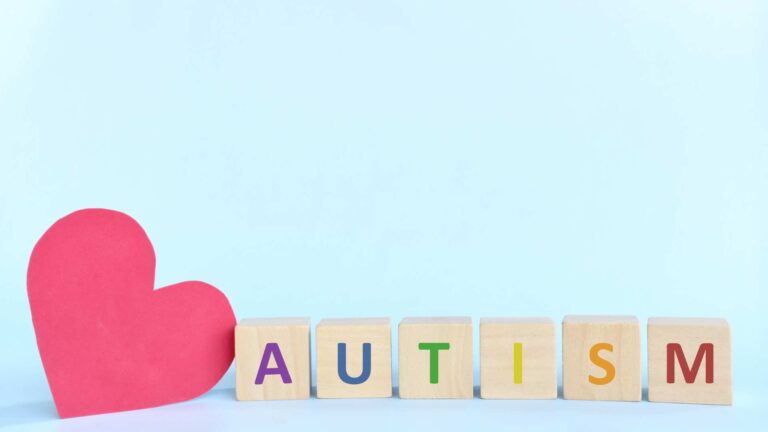How does autism affect caregivers?
Daily life involves numerous responsibilities, such as demanding jobs, household chores, and, for many families, the task of raising and educating children diagnosed with Autism Spectrum Disorder (ASD). This combination can lead to overwhelming pressure on caregivers, potentially pushing them to the point of emotional and physical exhaustion if not managed effectively. This state, known as “caregiver burnout,” is a common challenge faced by many families on their autism journey.
So, how does autism impact caregivers? ASD can affect various aspects of daily life, including communication, social interactions, and sensory sensitivities, requiring significant support and accommodations. Caregivers often experience elevated stress levels due to the demands of caregiving, which include managing behavioral challenges, coordinating therapies, and advocating for their loved one’s needs.
In this Texas ABA Centers blog, we will explore how caregivers can prevent burnout and how ABA therapy can benefit the entire family.
Understanding Caregiver Burnout
According to the Cleveland Clinic, caregiver burnout is a state of physical, emotional, and mental exhaustion that affects those caring for family members or loved ones with special or chronic needs. Professional caretakers or caregivers of individuals with chronic illnesses, physical or mental disabilities, older adults, or children with special needs such as autism commonly experience this condition.
While caring for a loved one can be rewarding, it can also be extremely demanding and draining. Caregivers often face a combination of physical, emotional, and financial demands that can lead to burnout if not adequately addressed.
Caregivers experience burnout due to the physical effort of providing daily care, along with the emotional and psychological burden it involves. They often face stress, anxiety, guilt, sadness, and frustration. Furthermore, lack of sleep, inadequate time for self-care, and constant worry about the well-being of their loved ones significantly contribute to this burnout.
Caregiver Burnout in Autism
The autism spectrum encompasses various levels of severity, with some individuals experiencing characteristics more profoundly and requiring substantial support for basic needs. Regardless of the severity, autism can be very demanding for caregivers, who often experience high levels of stress.
The study “Physical and Mental Health Effects of Family Caregiving” highlights the substantial impact of caregiving on physical and psychological health, emphasizing the development of chronic stress. Caregivers, typically family members or friends, endure prolonged strain, unpredictability, and lack of control, often resulting in secondary stress in various life domains.
Are you experiencing burnout? Here are some key symptoms or experiences:
- You are constantly working to meet your child’s needs and feel overwhelmed by the responsibility. Sometimes, you find yourself emotionally drained and struggle to connect with others.
- You spend your days attending to your child, and constant caregiving leaves you physically exhausted. You battle chronic fatigue due to lack of sleep and the physical demands of caregiving.
- You handle your child’s daily autism challenges, from behavioral difficulties to medical appointments and therapies. Constant stress can weigh on you, making it hard to stay calm.
- Your child’s intensive caregiving needs make it challenging to engage in social activities or maintain meaningful social relationships.
- As you face the challenges of caring for your child, you sometimes battle feelings of sadness, guilt, and stress. You may feel overwhelmed by the responsibility and find it hard to find joy in things you used to enjoy.
- You often need to receive more emotional or practical support from your surroundings to handle the challenges of caring for your child.
Strategies to Cope with Stress
It’s crucial to recognize when you need assistance and have strategies to manage stress while juggling roles as a parent and educator. Here are some practical tips:
- Prioritize Your Health: Focus on your physical, mental, and emotional well-being through exercise, a healthy diet, and sufficient rest to reduce stress.
- Find Support: Connect with autism support groups in Texas or seek help from friends and family for both emotional and practical reasons.
- Use Respite Care: Take advantage of respite care services to give yourself a break and engage in activities that recharge you.
- Educate Yourself: Learn about autism and any therapies your loved one is undergoing, like ABA therapy, to support them at home better.
- Manage Stress: To manage stress effectively, practice techniques like meditation, deep breathing, or yoga and take walks.
- Consider Professional Help: If feelings of burnout persist, seek assistance from a mental health professional.
ABA Therapy Supports Parents
Applied behavior analysis (ABA) is a valuable tool for families dealing with autism. This methodology not only focuses on equipping children with autism with social, communicative, and behavioral skills but also directly addresses the challenges faced by parents and caregivers.
Through personalized and scientifically supported techniques, ABA therapy adapts to the individual needs of each child, providing a focused approach to their growth and development. From teaching basic communication skills to managing challenging behaviors, this therapy becomes a pathway to greater independence.
But its scope goes further: by reducing caregivers’ stress, ABA therapy nurtures a healthier and more balanced family environment. Parents find invaluable support in this methodology, not only in terms of managing difficult situations but also in strengthening their relationship with their children. It provides parents with practical tools and specific strategies to understand and address the unique needs of their children with autism, allowing them to feel more empowered and secure in their role as caregivers.
Texas ABA Centers Teach You How to Navigate Autism
Parents dedicate themselves to ensuring their children have the best possible upbringing, filled with happiness, well-being, and personal development. However, in striving towards this goal, they often need to pay more attention to their own self-care and individual well-being. It’s essential to remember that taking care of oneself is just as important as caring for others. When you are healthy and well, you are better equipped to provide excellent care to others.
ABA therapy, along with emotional support and self-care strategies, can be a powerful tool to help families face the challenges of autism with more peace of mind and resilience. With this support, Texas ABA Centers assist families in Austin, Dallas, Houston, and many more cities, offering support in developing constructive and positive habits in children with ASD.
Our personalized, evidence-based approach benefits the children and provides vital support to caregivers on their journey toward family well-being and stability. Discover how ABA therapy can help your entire family; call us at (877) 771-5725 or complete our online form to continue exploring our autism care services.








